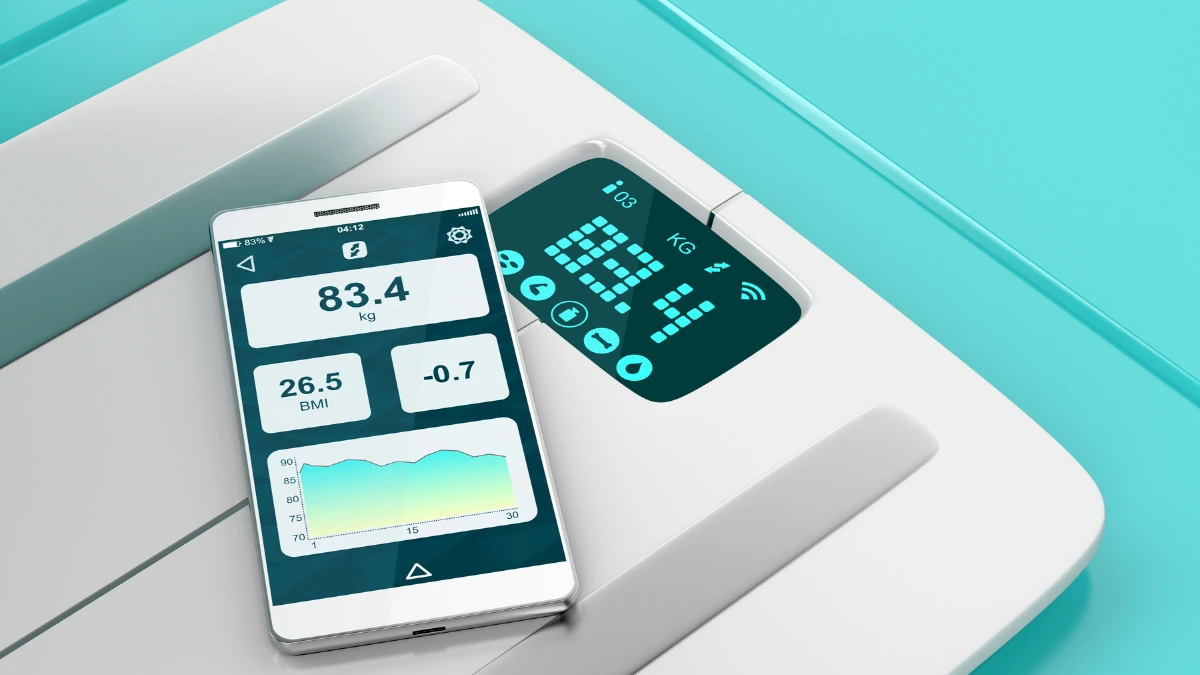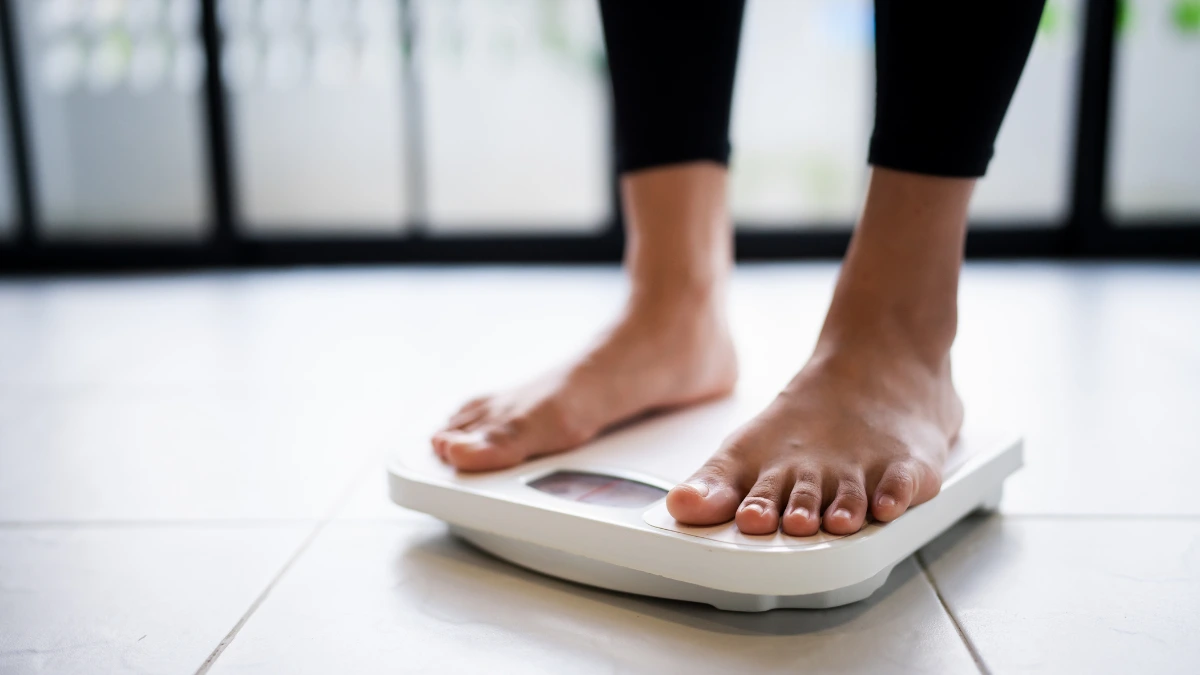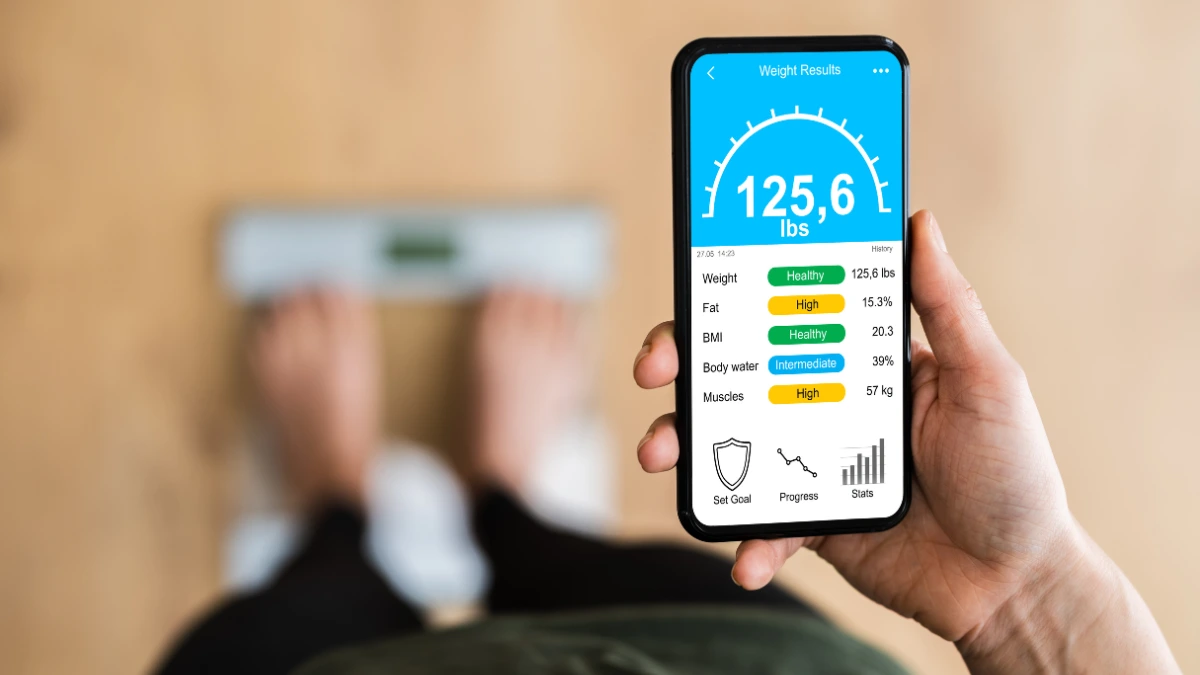Along with public awareness of the importance of maintaining health, many devices and applications have been produced that support this, one of which is the smart scale.
Not only measuring body weight, a smart scale with sensors and electric current can monitor your overall health.
In this article, we will review the smart scale from its definition, how it works, benefits, and regulations in Indonesia.
What is a Smart Scale?

Smart scales are scales equipped with advanced sensors and connectivity technologies such as Bluetooth or WiFi.
This tool can usually display several data such as body weight, body fat percentage, muscle mass, water content, bone mass, body mass index (BMI), and basal metabolic rate (BMR).
The data generated by the technology, then be sent to health apps on the user’s phone such as Google Fit, Apple Health, or the device’s built-in app.
Smart scales are suitable for the whole family, as some device also support multi-user features.
How it Works?
Bioelectrical Impedance Analysis (BIA) is the basis of how the smart scale works. BIA is used to measure various components of the body through electrical currents. Here’s how the tehnology works in detail:
- Sensors conduct electric current: Metal sensors on the surface of the scale conduct a low electric current through the soles of the feet to the rest of the body and back to the device.
- The electric current measures impedance: The device measures the impedance to estimate how much body composition you have.
- The impedance calculates the data through an algorithm: The impedance data is processed by the chip inside the scale to generate data such as weight, height, age, and gender. With certain algorithms, the technology calculates body weight, body fat percentage, muscle mass, water content, bone mass, body mass index (BMI), and basal metabolic rate (BMR).
The Benefits

With various conveniences, smart scales provide many benefits, making them an ideal choice for individuals who want to maintain fitness, personal trainers, and health clinics. Here are some of the main benefits of the technology in everyday life:
1. Comprehensive health monitoring
The device can comprehensively monitor not only body weight, but also body fat percentage, muscle mass, water content, bone mass, body mass index (BMI), and basal metabolic rate (BMR).
2. Motivation in diet and exercise programs
The device can display data via graphs displayed in the application, so users can see the progress of diet and exercise programs consistently.
3. Integration with other smart devices
The data generated by the device can be used in conjunction with a smartwatch, fitness tracker, smartphone, or even nutrition applications.
Role of Smartphone Application for Smart Scale
The smart scale calculates the data and then synchronizes the results to the health application on the smartphone. Connecting the device to a smartphone is done via a Bluetooth or WiFi connection.
Through the application on your smartphone, you can see data such as trends in weight change, body composition over time, weekly or monthly graphs, daily or monthly targets, and notifications when significant changes occur.
Some apps can even connect with other devices, such as smartwatches or fitness trackers, to provide a more comprehensive picture of your health.
The Regulations in Indonesia

Smart scale uses communication technologies such as Bluetooth or WiFi that operate within a specific frequency spectrum. In Indonesia, any Bluetooth or WiFi-based wireless device is required to have DJID (Directorate General of Digital Infrastructure) under the Ministry of Communication and Digital (KOMDIGI).
This is based on KEPMEN No. 260 Tahun 2024 and No. 12 Tahun 2025, which require all radio frequency-based devices, including smart scale, to meet specific technical standards before being sold in the country.
The certification ensures that the product meets government safety and quality regulations and does not interfere with other communication devices. The certification process involves technical testing, such as frequency adjustments, safety checks, and compatibility with the surrounding environment.
Once the tests are completed, products that pass are listed in a Test Result Report, which confirms that the product is safe and ready for sale in Indonesia. This report reassures customers that the product meets technical standards and is secure.
For companies wanting to sell smart scale in Indonesia, our Type Approval Services are available to assist with this process. This service includes preparing technical and legal documents, conducting required testing, ensuring compliance with regulations, helping companies streamline the certification process, and giving consumers confidence in certified products. [UN]

